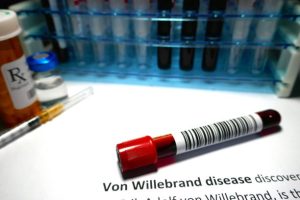
The photo of heart is on the woman's body, Severe heartache, Having heart attack or Painful cramps, Heart disease, Pressing on chest with painful expression.
Angina
What is Angina?
Angina, or angina pectoris, is chest pain or discomfort caused by reduced blood flow to the heart muscle, often due to coronary artery disease. It typically manifests as a sensation of pressure, squeezing, or heaviness in the chest, and can also be felt in the shoulders, neck, arms, or jaw. Angina is not a heart attack but may indicate an increased risk of one.
Types of Angina:
- Stable Angina: Occurs predictably with physical activity or stress and usually resolves with rest or medication.
- Unstable Angina: Occurs unexpectedly, can happen at rest, and may last longer. It is a medical emergency and requires immediate attention.
- Variant Angina (Prinzmetal’s Angina): Caused by spasms in the coronary arteries, leading to temporary narrowing and reduced blood flow, often occurring at rest.
Main Causes of Angina:
- Coronary Artery Disease (CAD): The most common cause, where plaque builds up in the coronary arteries, narrowing them and limiting blood flow.
- Coronary Artery Spasm: Temporary tightening of the muscles within the arteries can restrict blood flow.
- Severe Anemia: Low red blood cell count reduces oxygen delivery to the heart.
- High Blood Pressure: Can cause the heart to work harder, increasing oxygen demand.
- Heart Valve Disease: Dysfunction in heart valves can impede blood flow.
Signs and Symptoms of Angina:
- Chest Pain or Discomfort: Often described as pressure, squeezing, or fullness in the chest.
- Pain Radiating to Other Areas: May extend to shoulders, neck, arms, back, jaw, or stomach.
- Shortness of Breath: Difficulty breathing, especially during physical exertion.
- Nausea or Sweating: Accompanying symptoms that may occur during an angina episode.
Risk Factors for Angina:
- Age: Risk increases with age, particularly in men over 45 and women over 55.
- Family History: A family history of heart disease increases risk.
- High Blood Pressure: Elevated blood pressure contributes to coronary artery damage.
- High Cholesterol: Elevated levels of LDL cholesterol can lead to plaque buildup.
- Smoking: Tobacco use damages blood vessels and increases heart disease risk.
- Diabetes: Can lead to coronary artery disease and increase angina risk.
- Obesity and Sedentary Lifestyle: Excess weight and lack of physical activity can contribute to heart disease.
How to Prevent Angina:
- Healthy Diet: Eat a balanced diet rich in fruits, vegetables, whole grains, and lean proteins.
- Regular Exercise: Engage in moderate physical activity most days of the week.
- Weight Management: Maintain a healthy weight to reduce strain on the heart.
- Quit Smoking: Avoid tobacco use and exposure to secondhand smoke.
- Manage Stress: Use relaxation techniques to reduce stress and anxiety.
- Control Blood Pressure and Cholesterol: Regularly monitor and manage these levels with healthcare provider guidance.
How Angina is Diagnosed:
- Medical History: Review of symptoms, risk factors, and family history.
- Physical Examination: Evaluation of heart health and overall physical condition.
- Electrocardiogram (ECG): Measures electrical activity of the heart, identifying abnormalities.
- Stress Test: Monitors heart function during physical activity or induced stress.
- Imaging Tests: Techniques like echocardiography or angiography to visualize blood flow and coronary arteries.
Treatment for Angina:
- Medications: Common treatments include nitrates (for immediate relief), beta-blockers, calcium channel blockers, and antiplatelet agents (like aspirin).
- Lifestyle Changes: Adopting a heart-healthy lifestyle to manage risk factors.
- Medical Procedures: In severe cases, procedures like angioplasty or coronary artery bypass grafting (CABG) may be necessary to restore blood flow.
Home Remedies for Angina:
- Stress Management: Engage in yoga, meditation, or deep breathing exercises to reduce stress.
- Heart-Healthy Foods: Incorporate foods rich in omega-3 fatty acids (like fish), nuts, and whole grains into your diet.
- Regular Monitoring: Keep track of your symptoms and consult your doctor if they change or worsen.
Ayurvedic Medicine for Angina:
- Ginger: Known for its anti-inflammatory properties, it may help improve circulation.
- Turmeric: Contains curcumin, which may support heart health by reducing inflammation.
- Garlic: May help lower blood pressure and cholesterol levels.
- Arjuna: An herb traditionally used in Ayurveda for heart health, known for its potential benefits on cardiac function.
Precautions:
- Monitor Symptoms: Keep track of any changes in angina frequency or intensity and report to your healthcare provider.
- Avoid Triggers: Identify and avoid activities or situations that provoke angina.
- Follow Medical Advice: Adhere to prescribed medications and lifestyle recommendations from your healthcare provider.
Self-Care Tips:
- Adopt a Heart-Healthy Diet: Focus on foods that promote cardiovascular health.
- Stay Active: Regular physical activity can strengthen the heart and improve overall health.
- Stay Hydrated: Drinking adequate water is important for overall health.
Conclusion:
Angina is a significant indicator of underlying heart disease and should be taken seriously. With proper diagnosis, management, and lifestyle modifications, many individuals can effectively control angina and reduce their risk of more serious cardiac events.
Disclaimer:
This information is for educational purposes only and should not replace professional medical advice. If you experience chest pain or other symptoms of angina, seek immediate medical attention.
Additional Tips:
- Educate Yourself: Understand your condition and treatment options.
- Participate in Cardiac Rehabilitation: If recommended, this program can help improve heart health and manage angina.
- Keep Regular Appointments: Stay in touch with your healthcare provider for ongoing management of heart health.








